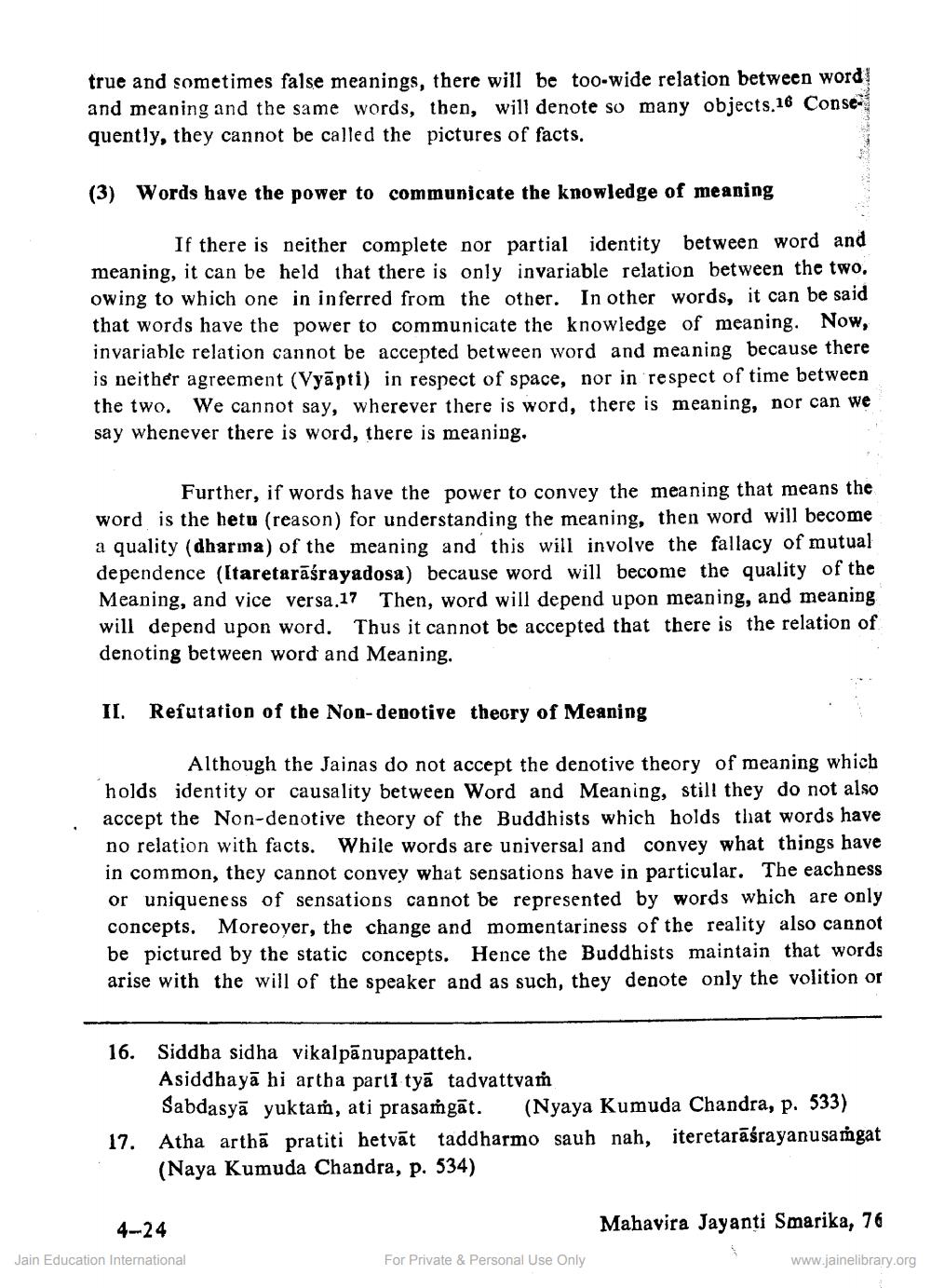________________
true and sometimes false meanings, there will be too-wide relation between word! and meaning and the same words, then, will denote so many objects.16 Consequently, they cannot be called the pictures of facts.
(3) Words have the power to communicate the knowledge of meaning
If there is neither complete nor partial identity between word and meaning, it can be held that there is only invariable relation between the two, owing to which one in inferred from the other. In other words, it can be said that words have the power to communicate the knowledge of meaning. Now, invariable relation cannot be accepted between word and meaning because there is neither agreement (Vyāpti) in respect of space, nor in respect of time between the two. We cannot say, wherever there is word, there is meaning, nor can we say whenever there is word, there is meaning,
Further, if words have the power to convey the meaning that means the word is the hetu (reason) for understanding the meaning, then word will become a quality (dharma) of the meaning and this will involve the fallacy of mutual dependence (Itaretarāśrayadosa) because word will become the quality of the Meaning, and vice versa.17 Then, word will depend upon meaning, and meaning will depend upon word. Thus it cannot be accepted that there is the relation of denoting between word and Meaning.
II. Refutation of the Non-denotive theory of Meaning
Although the Jainas do not accept the denotive theory of meaning which holds identity or causality between Word and Meaning, still they do not also accept the Non-denotive theory of the Buddhists which holds that words have no relation with facts. While words are universal and convey what things have in common, they cannot convey what sensations have in particular. The eachness or uniqueness of sensations cannot be represented by words which are only concepts. Moreover, the change and momentariness of the reality also cannot be pictured by the static concepts. Hence the Buddhists maintain that words arise with the will of the speaker and as such, they denote only the volition or
16. Siddha sidha vikalpānupapatteh.
Asiddhayā hi artha parti tyā tadvattvam
Sabdasyā yuktam, ati prasaṁgāt. (Nyaya Kumuda Chandra, p. 533) 17. Atha arthā pratiti hetvāt taddharmo sauh nah, iteretarāśrayanusamgat
(Naya Kumuda Chandra, p. 534)
Mahavira Jayanti Smarika, 76
4-24 Jain Education International
For Private & Personal Use Only
www.jainelibrary.org




